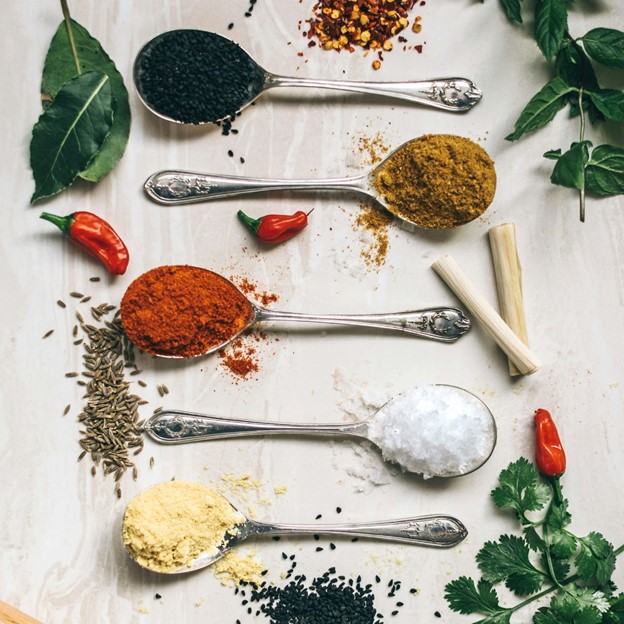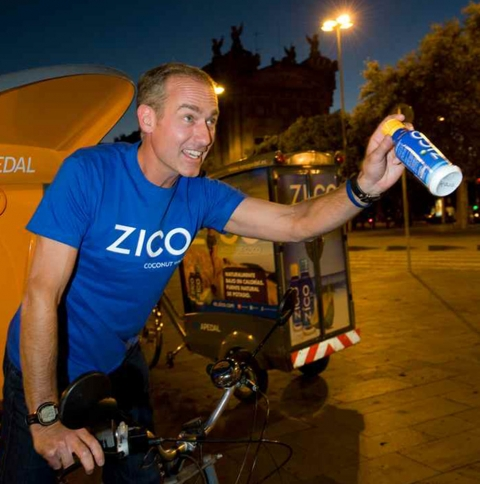Food as Medicine: Transforming Healthcare through Nutrition
March 19, 2024
In an era where diet-related chronic diseases account for a staggering 85% of U.S. healthcare expenditures, the emergent Food as Medicine movement stands out as a beacon of integrative health, offering a holistic approach that marries nutrition with medical science to combat and prevent illness.
The Food as Medicine movement is an integrative approach that recognizes the powerful impact of dietary choices on health and well-being. This movement is a holistic approach to health and nutrition that emphasizes using whole, nutrient-dense foods to prevent and treat various health conditions. It recognizes the profound impact of diet on overall well-being and aims to integrate dietary choices into healthcare practices.
The core principle is that food should provide energy and be a powerful tool for promoting health, preventing diseases, and supporting the body’s natural healing processes. The movement encourages the consumption of whole, unprocessed foods rich in essential nutrients, including vitamins, minerals, antioxidants, and other bioactive compounds. Emphasis is placed on a diverse and colorful range of fruits, vegetables, whole grains, lean proteins, and healthy fats.
Why Food as Medicine Matters Now?
While there is a basic understanding of what makes up a healthy diet, most of the U.S. population does not eat healthy food at rates consistent with the recommended clinical guidelines. This is for a myriad of reasons, both on a systemic and individual level. We face a serious food and nutrition insecurity, access to and affordability of healthy foods, a lack of strict regulations on food marketing, education gaps, and behavioral challenges, such as a focus on immediate versus delayed gratification. For instance, one in six Americans experience food scarcity and often depend on ultra-processed foods for survival. And, U.S. dietary guidelines are still focused on nutrients, meaning any company can pad foods with micronutrients while keeping cheaper, genetically engineered ingredients just to pass muster.
The Roots of The Food as Medicine Movement
The concept of Food as Medicine is nothing new. It was Hippocrates in 400 B.C. who advised people to prevent and treat disease first and foremost by eating nutrient-dense foods. The quote: “Let medicine be thy food and let food be thy medicine,” is attributed to the ancient Greek physician, and stands as one of the earliest affirmations that foods hold healing properties.
In addition to historical and folk evidence, including Ayurveda (whole-body healing systems) and traditional Chinese medicine, Western-based medicine investigates healing properties of food and food derivatives (mostly from plants).
In the era of biomedicine, an early example of a nutrient–deficient disease alleviated by whole foods is the relationship between what was later identified as vitamin C and scurvy. Across different cultures, this understanding extends into a rich tapestry of food-based remedies: from the Ayurvedic practices of India, which use spices and herbs to balance the body’s energies, to traditional Chinese medicine that prescribes specific foods to harmonize with the body’s yin and yang. In the Mediterranean, diets rich in olives, fish, and green vegetables are linked to longevity and heart health, while indigenous cultures have long used plants and herbs native to their regions for healing and nourishment. This global perspective underscores a broader relationship among social conditions, poor nutrition, and weakened health, emphasizing that the most specific therapy for malnutrition is, perhaps a little too obviously, whole foods.
The Protective Properties of Food
Though natural foods, plants, and herbs have healing properties proven to alleviate symptoms and heal illness, the Food as Medicine movement is equally focused on prevention. When we talk about medicinal foods, we refer to their capacity to act like natural protectors against disease development. It’s helpful to have medicine to treat ailments, but wouldn’t it be nice if the illness was never an issue––considering that largely preventable, diet-related chronic diseases are a leading cause of death in the U.S.? In fact, there are ten dietary factors that cause nearly a thousand deaths every day from heart disease, stroke, and diabetes alone. And, in the United States, over 48 million households have a member with a health condition that needs to be managed through diet. Food as Medicine is a proactive approach, much more than reactive.
For example, medicinal food can help decrease and control inflammation, which represents a major root cause of many chronic diseases. Inflammatory processes can affect nearly every tissue, hormone, and cell in the body. Other advantages include balancing hormones, which affect biologic functions, including energy storage and production, cognitive abilities, body weight, and sex drive. It can also be a natural way to boost your immune system response and gut health.
Focusing on improving nutrient absorption (bioavailability) can also be addressed with Food as Medicine. As researchers continue to explore the concept of nutrient density, they look at the biological activity of single nutrients in their interaction with other nutrients and food components. Diet-related factors in plant foods that affect bioavailability go beyond the food itself to include its chemical form, how it plays with other nutrients and organic elements, and of course how it’s processed.
The concept of Food as Medicine dates back to the earliest civilizations, but with the technology and advancements in place today, there’s a significant opportunity for both policy and industry to apply this knowledge for a healthier tomorrow.
Policy Steps In
The good news is, Washington is listening and taking action. In September 2022, the White House held a conference on Hunger, Nutrition, and Health, the first event of its kind in more than 50 years. There, they announced a five-part plan for tackling food insecurity and diet-related diseases, that included making healthy food more accessible, curbing sugar consumption, and expanding food-as-medicine programs. And last year, the Biden Administration approved the use of Medicaid funds to pay for fresh produce and nutrition counseling, in order to bolster preventative health measures and reduce costly medical interventions.
The White House conference generated $8.5 billion in commitments to help end hunger and reduce diet-related diseases and disparities by 2030. This included a partnership among the Rockefeller Foundation, the American Heart Association, and Kroger to mobilize $250 million to build a national Food Is Medicine Research Initiative to make FIM “a regular and reimbursable component of Americans’ health care.” To further push this work, Tufts University recently launched an initiative to advance FIM actions in health care by bringing together research, education, patient care, and community engagement.
Working in parallel, the private sector is also looking to reduce hunger and improve health through food. The commitments generated by the White House conference included a coalition of investors who pledged $2.5 billion to support new companies and the scaling up of proven technologies.
Early Adopters in The Space
While personalized nutrition startups prove the evidence of better eating, food-as-medicine companies are preparing to do the hard things by investing in infrastructure and partnering with the public sector. This is a big deal. Medically tailored meals could save $13.6 billion a year and prevent 1.6 million hospitalizations, alone. So, who is at the forefront of this movement? Except for Thistle, which is one of our portfolio companies, we are not endorsing these businesses. However, the following list is a sample set of trailblazers that are worth mentioning.
- In 2021, nonprofit About Fresh partnered with five Massachusetts healthcare systems, debuting a Medicaid-supported produce prescription debit card.
- Last year, Free From Market, (which has now called Attane Health) raised $2.1 million, and provides bulk ordering, produce/meal delivery, and tele-nutrition services for low-income individuals with chronic health issues.
- Food-as-medicine platform Season Health partnered with healthAlign to couple Medicare Advantage-backed in-home aged care with personalized meals. Last year they raised $34 million in a Series A. Season had previously raised $11 million in seed funding.
- Uber Health announced a physician-prescribed grocery delivery service for those recently discharged from hospitals.
- Thistle, a GroundForce Capital portfolio company, delivers fresh, ready-to-enjoy plant-forward meals straight to your doorstep.
- Bitewell helps people shop for foods to prevent or treat disease that fit their needs, preferences, and budget on their easy-to-use digital food farmacy. They announced an oversubscribed close of their $4 million seed round last year.
- We are also starting to see Food as Medicine-forward meal-kit and food box delivery services crop up like FarmboxRx, Vitabowls, and ModifyHealth.
Likely spurred by a shift in policy, the last year has seen tremendous growth for startups and companies looking to expand into the Food as Medicine space.
The Future of Food as Medicine
The future looks bright for Food as Medicine. As these early adopters pave the way, there are opportunities to refine and advance technology, and increase widespread education and consumer adoption. Shiri Avnery, Thistle’s Co-Founder & President, poses the impactful question, “What if we could use food to heal our bodies and our planet”? With her Ph.D. in Environmental Science, Shiri explored the deep connections between diet and global health, inspiring her and her husband, Ash, to found Thistle. Their company embodies the principles of the Food as Medicine movement by providing convenient, plant-forward meal options that cater to a healthier and more sustainable lifestyle. As advocates like Shiri propel this movement forward, the promise of using food to heal both bodies and the planet becomes increasingly tangible, marking a significant chapter in the evolution of healthcare and nutrition.
The momentum of Food as Medicine is accelerating, driven by both policy changes and pioneering companies. By embracing the ancient wisdom that food can be the best medicine, we can forge a future where diet is not just a factor, but a foundational solution to preventing and treating chronic diseases.



